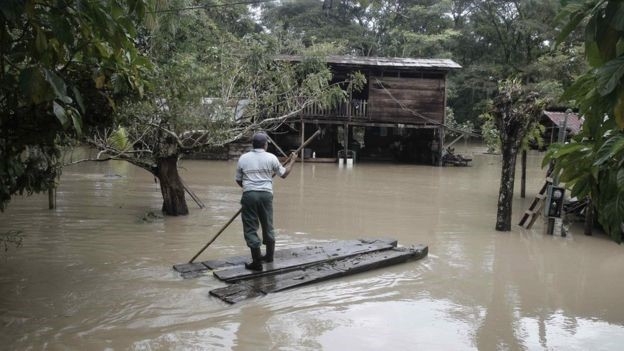Costa Rica urged to consider climate change when outlining budgets

Costa Rica is prone to experiencing extreme weather events such as hurricanes and tropical storms. It is predicted that climate change will increase the frequency and severity of these weather events.
The Government of Costa Rica report that when Hurricane Otto struck Costa Rica in 2016, it caused tremendous losses of more than $200 million.
Similarly in 2017, Tropical Storm Nate battered the country and increased reconstruction costs.
Maria Acosta, Costa Rica’s Comptroller has insisted that all government agencies must consider climate risks when outlining their budgets.
A recent report by the General Comptroller’s Office demonstrated that by 2025, Costa Rica may have to spend up to 2.5 of its gross domestic product (GDP) on rebuilding due to natural disasters.
Researchers have proposed to construct a “climate fiscal framework” that would address the impacts of climate change and track spending used to curb climate change. In order to successfully implement the framework, it requires political support and approval by the Legislative Assembly.
During a congressional hearing in October, Maria Acosta urged lawmakers to monitor and identify all public funds allocated to mitigating climate change.
Maria Acosta commented:
“Tracking climate spending would enable the funds to be used more wisely and efficiently in line with priorities. This is a fundamental given their scarcity.”
According to Acosta, the country could improve its public and private assets by adjusting to climatic changes and improving the efficiency of efforts to reduce carbon emissions.
Costa Rica is currently experiencing its highest fiscal deficit at 7 percent GDP due to falling tax revenues and increased government spending. In June, the government’s expenses were significantly higher than its income.
Maria Acosta added:
“We know that we are in a critical situation. Therefore, the scarcer the resources, the more we have to plan. Climate events are going to continue and they will be more and more intense.”
AIDF Global Summit will return to Washington D.C., USA in September 2019
If you’d like to stay informed on the latest updates in aid and development, please sign up for the AIDF newsletter.
Photo Credit: BBC














